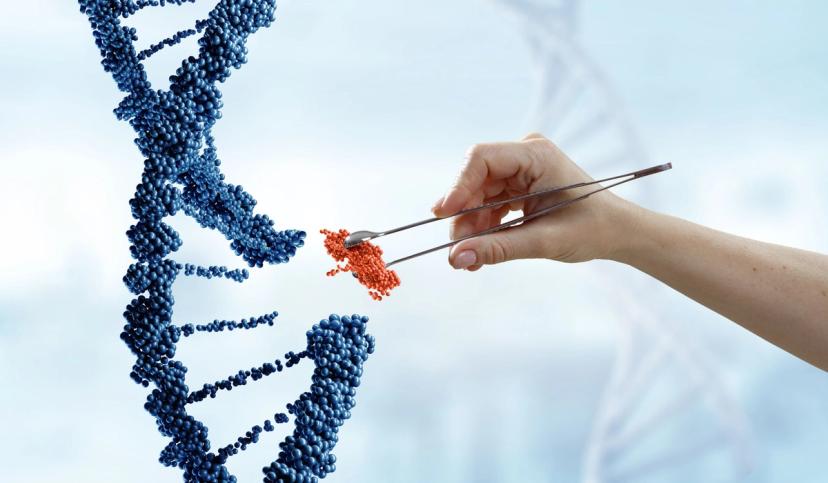Cell and gene therapies pivotal for personalized medicine
Explore how the latest advancements and recent regulatory approvals are making truly personalized medicine a reality
15 Feb 2024
Cell and gene therapies are undeniably a turning point for personalized medicine. The ability to precisely target diseases at the genetic and cellular levels, tailor treatments to individual profiles, and potentially cure conditions marks a new era in healthcare. As research and innovation continue to propel these therapies forward, the vision of truly personalized and effective medical treatments is becoming a reality, offering hope and improved outcomes for patients around the world. They have the ability to redefine healthcare outcomes and serve as a life-saving tool for generations to come.
Distinct from each other yet often referred to together, cell and gene therapies are advancing medicine like never before. Gene therapy corrects genetic material to tackle the root cause of disease. In contrast, cell therapy harnesses living cells to enhance or restore the body's natural functions. An example of this is stem cell transplants, whereby stem cells are used to repair damaged tissues or organs. This not only minimizes side effects, but also enhances the body's inherent ability to recover and regenerate.
Both cell and gene therapy methods demonstrate significant promise in advancing treatment across a range of conditions. Unlike conventional medicines that primarily manage symptoms or slow down disease progression, these therapies strive to cure disease by addressing the root cause. This distinctive approach sets them apart from many traditional treatments, potentially offering a more effective and long-lasting solution for patients.
Gene therapy operates by introducing genetic material into a patient's cells to correct or replace faulty genes that are responsible for a particular disease. Alternatively, cell therapy primarily targets the cells themselves, with the aim to replace or repair dysfunctional cells. This often involves transplanting healthy cells into a patient, either with their own cells (autologous) or from a donor (allogeneic).

More effective, less risk of rejection
The reduced risk of rejection, especially in autologous cell therapy, enhances the safety and effectiveness of cell therapy. This therapy is commonly used for treating specific cancers or immune disorders, offering potential in personalized tissue regeneration for repair and healing.
It's important to note that both therapies are highly targeted, since they specifically address the root cause of an individual's disease with treatment plans fine-tuned to accommodate the unique profile of each person. This personalized approach not only enhances treatment precision but also reduces the risk of unintended side effects associated with more generalized interventions.
Getting personal
In recent years there has been significant transformation in the field of medicine, with a shift towards more tailored treatment strategies. At the forefront of this transformation is personalized medicine, which uses an individual's unique genetic makeup to guide decisions on how to prevent, diagnose, and treat disease. A driving force behind this transformation is the impact of cell and gene therapies. These two groundbreaking therapies will either use a patient's own cells or modify their genes to treat and prevent disease effectively.
Beyond symptom management
Traditional treatments often focus on managing symptoms or slowing down the progression of diseases. Cell and gene therapies, on the other hand, have the potential to cure certain conditions by addressing the underlying genetic or cellular defects. This shift from disease management to potential cures is a huge advancement in the pursuit of personalized and precision medicine.
Consider genetic disorders, for instance, where traditional treatments might focus on symptom management. Similarly, in certain types of cancer, where conventional treatments often involve prolonged management and potential recurrence, cell and gene therapies aim to eradicate cancerous cells at their source, potentially leading to complete remission.
The UK regulatory body, the MHRA, has given the green light for the first-ever CRISPR-based gene therapy, Casgevy™ (exa-cel), jointly developed by Vertex and CRISPR Therapeutics. Casgevy is designed for the treatment of individuals aged 12 and older with sickle cell disease and transfusion-dependent beta thalassemia, both genetic blood disorders. In addition, Bluebird Bio has officially revealed that Lyfgenia™ (lovotibeglogene autotemcel) has also been granted FDA approval for the treatment of Sickle Cell Disease. This groundbreaking, one-time gene therapy holds the promise of efficiently tackling vaso-occlusive events by precisely targeting and addressing the fundamental cause of sickle cell disease.
This milestone paves the way for future CRISPR-based gene therapies, holding the potential to transform lives on a broader scale. Following regulatory approval in the UK in November, the innovative therapy for sickle cell disease has now also gained approval from the US Food and Drug Administration (FDA), solidifying the global recognition and acceptance of this groundbreaking treatment. This means that as of December 2023, around 16,000 patients aged 12 and older, with severe sickle cell disease, may now qualify for this one-time treatment.

Logistical and delivery challenges
The integration of cell and gene therapies into medical practices poses significant logistical and delivery challenges for healthcare systems. Additionally, this also gives rise to a range of multifaceted issues, including societal, ethical, and economic considerations.
Effectively tackling issues associated with cell and gene therapy requires collaborative efforts from patients, caregivers, the government, and the broader public. These all play a crucial role in shaping policy discussions and facilitating well-considered decisions concerning involvement in clinical trials and the routine application of cell and gene therapies.
Through active engagement, heightened awareness, and an understanding among patients and the public are essential components of successfully integrating this therapy into our day-to-day lives.
